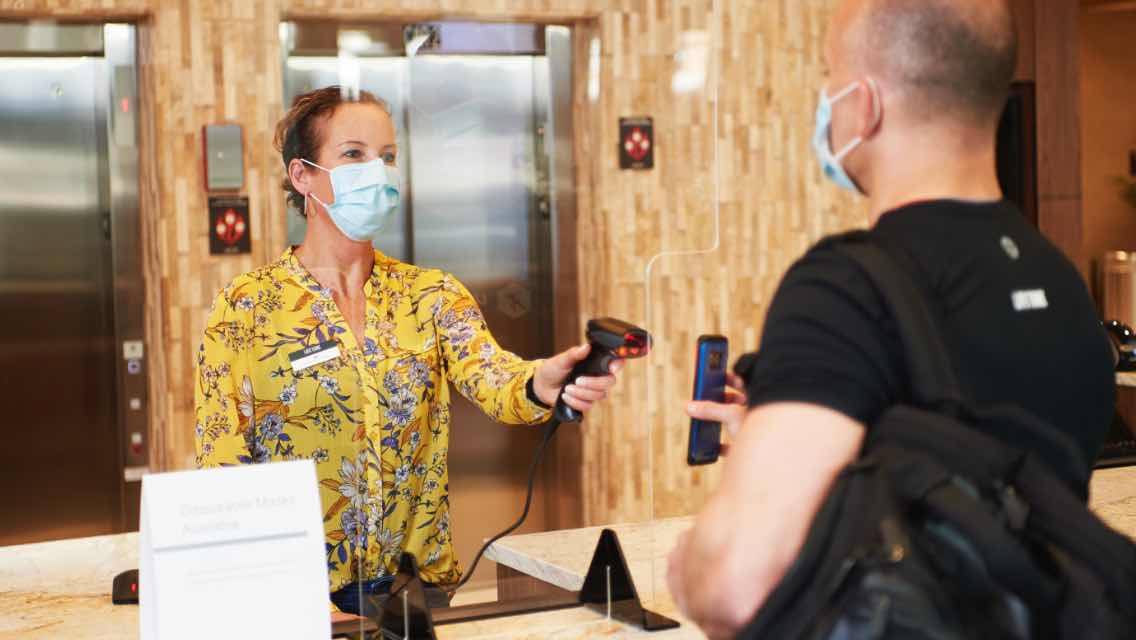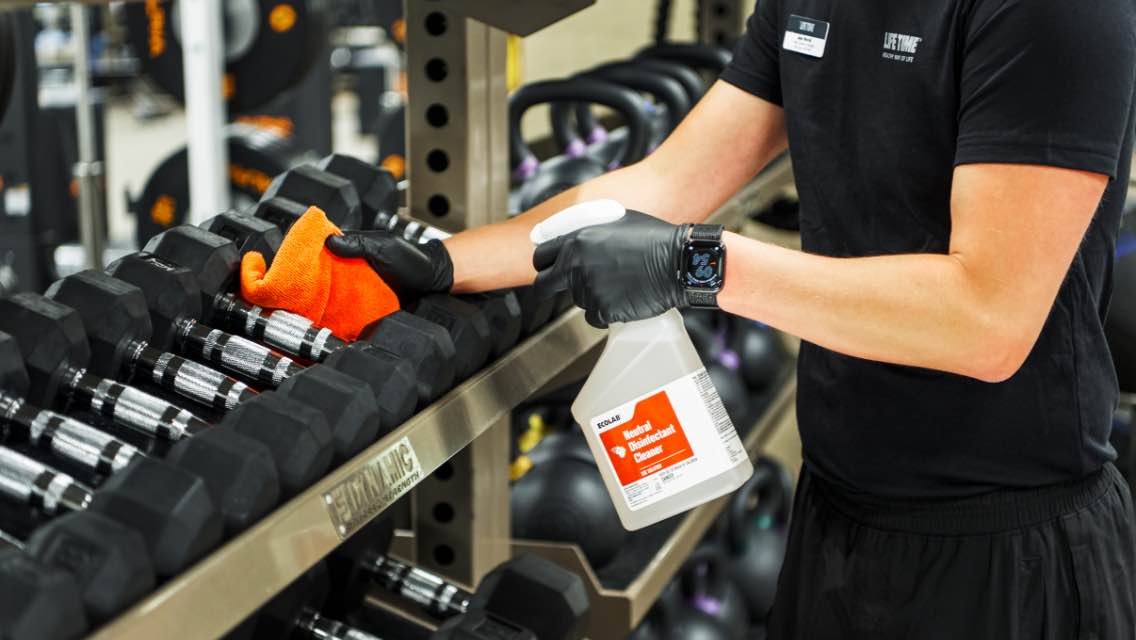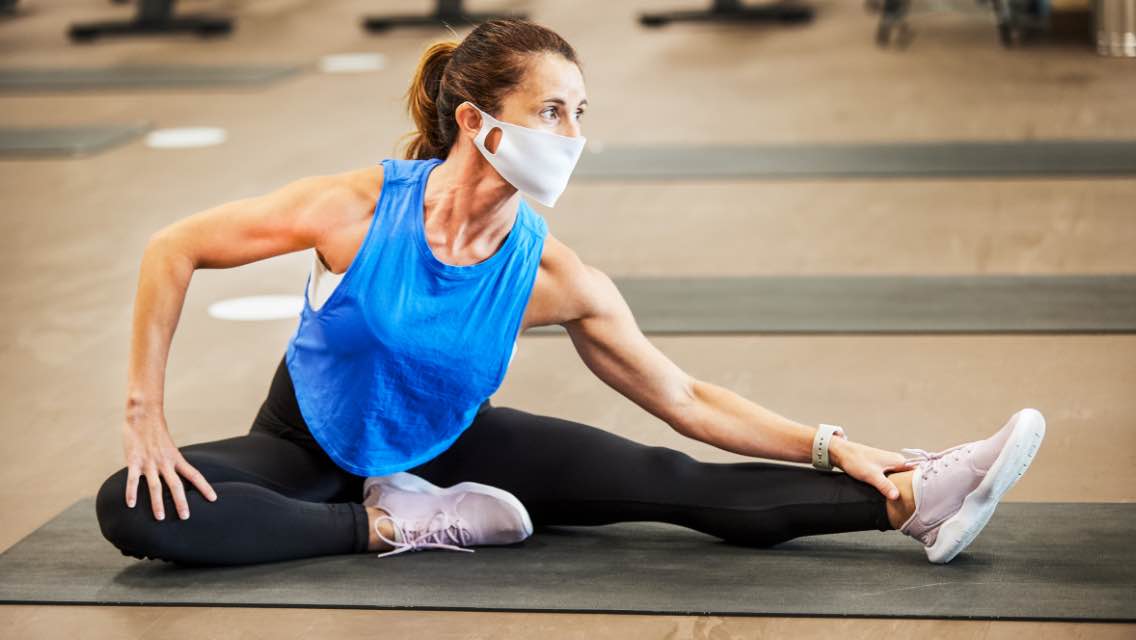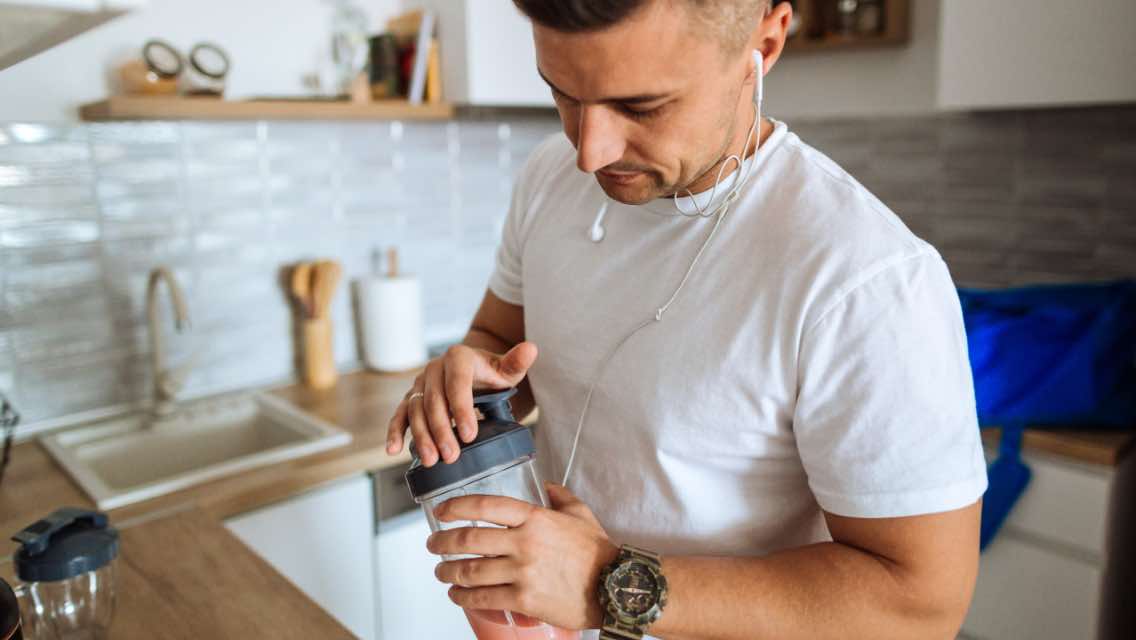Editor’s Note: The coronavirus pandemic has forever changed our world, and as states, the economy, and businesses reopen, we are all figuring how to go about our daily lives in spite of this ongoing health concern. We know COVID-19 is not simply going away.
Each of us has to assess our individual health risk as we make decisions about what we’re comfortable with and willing to do as life returns to some sense of normalcy.
To help you do so when it comes to your decision about returning to Life Time, we’re answering some commonly asked questions about the efforts we’re taking in our health clubs to keep you, your fellow members, and our team members safe and healthy. And we’re kicking off by addressing our HVAC systems.
As it’s widely known, and as is noted by the Centers for Disease Control and Prevention (CDC), COVID-19 is “thought to spread mainly from person to person, mainly through respiratory droplets produced when an infected person coughs or sneezes. These droplets can land in the mouths or noses of people who are nearby or possibly inhaled into the lungs.”
Due to the airborne nature of the spread, it’s no surprise that many members are curious about how Life Time manages the air quality in our health clubs and Life Time Work.
It’s important to start by noting that the HVAC systems in our clubs meet and exceed all current building code requirements. They are optimized to ensure your safety, as well as your comfort, while you work out, enjoy a haircut or facial, relax by the indoor pool, and while your kids play in our child centers.
In addition to our pre-existing efforts to ensure optimal air quality, we’re committed to following and adhering to the CDC and ASHRAE Guidelines for air circulation and filtration management throughout all of our clubs to minimize and prevent the spread of coronavirus. Here’s what that means:
- Increased outside air circulation. The ASHRAE guidelines recommend increasing the amount of outdoor air that’s circulated in indoor spaces to dilute airborne contaminants, including viruses. With this in mind, adjustments that allow more outside air to be brought in have been made to the HVAC systems throughout Life Time facilities, while also aiming to maintain stable temperatures and humidity.
To maximize efficiency, HVAC systems in commercial buildings like Life Times use economizers to monitor outside air temperature and humidity levels. When the conditions are good, more fresh air is brought in without a noticeable change.
This is being closely monitored. “It’s like running the air conditioner with the windows open,” explains Matt Johnson, director of facility engineering for Life Time. “We are increasing this as much as our systems can handle.”
In addition, each building and the surrounding environmental conditions need to be considered. “It’s not a one-size-fits-all answer,” says Catherine McLain, MS, a certified industrial hygienist who consults with Life Time about maintaining healthy, safe environments for our members. “Air pollution might be higher in a downtown area due to heavier traffic, for instance. The HVAC specialist who understands your facility can evaluate and adjust the system accordingly.”
- Adjusted ventilation rates based on the number of occupants and the potential for higher respiration rates due to activity — think a high-intensity cycle class like EDG or a heated yoga FLOW practice. This involves bringing more outside air into rooms that are less than 1,600 square feet, such as our group fitness studios, LifeSpas, LifeCafes, and smaller kids’ areas.
We’ve also updated the level of the minimum efficiency reporting value (MERV) air filters that are compatible with our HVAC systems from eight to 13 in these smaller spaces.
MERV is a rating that measures the effectiveness of air filters on a scale of 1 through 20 — the higher the rating, the denser the filter and the finer the particulates it can capture. The move from eight to 13 signifies an improvement that is on par with filters that are typically used in hospitals and to capture particles as tiny as sneeze droplets. They are designed to capture microparticles (0.3–1 mm), including bacteria and droplet nuclei (such as from a sneeze) from the air.
A MERV 13 filter is the maximum size that Life Time’s — and many commercial building’s — HVAC units can handle. (To learn why HEPA filters are not an option, see below.)
- Extended air circulation duration. Just as the heating and air-conditioning systems in many homes are optimized to run based on current conditions (too hot, too cold, too humid), so are the systems in our health clubs. To maintain or exceed air ventilation and circulation recommendations that prevent the spread of COVID-19, we have updated the settings on our HVAC systems to increase the duration of air circulation in our clubs. This helps to improve overall indoor air quality.
- Each club considered. Not all Life Time clubs are exactly the same, so each facility’s HVAC system is being reviewed and optimized to meet or exceed all current building requirements. According to Bryan Janowiec, vice president of facility operations for Life Time, this includes not only reviewing each club, but each of the spaces within them as well.
While these HVAC changes are important, both Janowiec and McLain stress that these improvements supplement the other hygiene factors that mitigate the spread of coronavirus: frequently washing our hands; not touching our faces; implementing enhanced cleaning, sanitizing, and disinfecting protocols; practicing social distancing; and staying home when we’re ill. “We each need to take responsibility where we can,” says McLain.
This is an ever-evolving situation. As new information and guidelines surrounding the spread of COVID-19 become available, we’ll be following suit so we can continue to provide you with safe, clean health-club spaces — and so you can continue to pursue your unique health and fitness goals with confidence at Life Time.
For an overview of all the safety measures Life Time has implemented to keep you safe, visit My.Lifetime.Life/safety.
Why doesn’t Life Time use HEPA filters?
In the world of HVAC, HEPA is a well-known household term. It stands for High Efficiency Particulate Air and in terms of filters, they fall on the highest end of the MERV — minimum efficiency reporting value — scale at 17 through 20.
While the crème de la crème at 99.97 percent efficiency for removing 0.3 mm particulates, HEPA filters are often not compatible with commercial HVAC systems due to their density. The denser the filters, the greater the restriction of air flow, which can cause system inefficiency. This is true for Life Time’s units, which can handle filters up to a MERV 13 rating.




